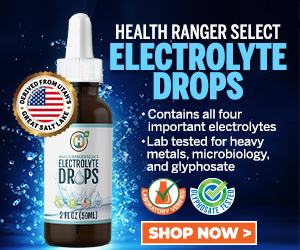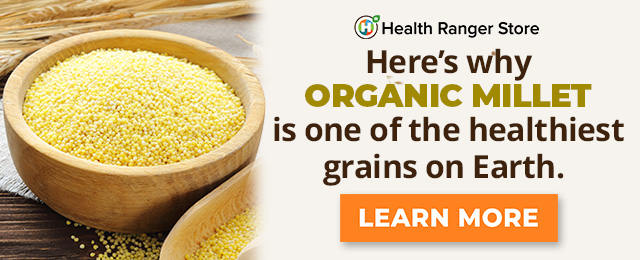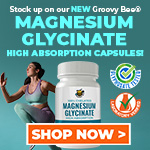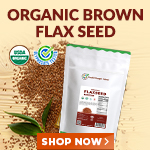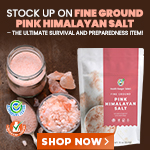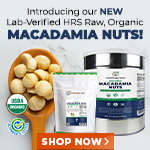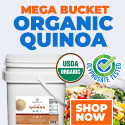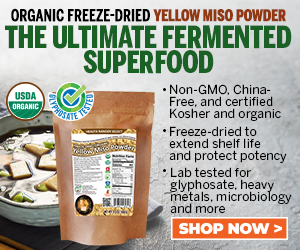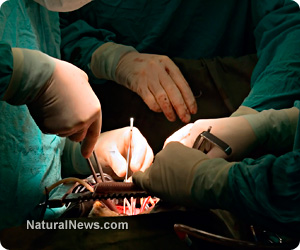
Antioxidant doubles liver transplant success rate
Sunday, March 17, 2013 by: David Gutierrez, staff writer
Tags: liver transplants, antioxidants, NAC
- Newly released JFK files reveal Pentagon's role in creating Lyme disease and covid in the same lab
- DEADLY DECEPTION: How COVID vaccines increased mortality rates and why authorities hid the truth
- CDC finally halts $11 billion COVID funding scam as health officials admit the ‘pandemic’ was a fraud
- The hidden dangers in your kitchen: How cooking methods impact diabetes, cancer and aging
- GAIN-OF-FUNCTION CAT-BIRD-FLU now on the rise as nearly a dozen cats in Colorado "test positive" for Bird Flu due to contaminated cat food
- Here are TEN all-natural ways to protect your garden without using harmful chemicals
- Trump's greatest betrayal so far: Accelerating Middle East wars, silencing dissent, and serving Zionist masters
- Why you should think twice before buying mainstream toothpaste formulas
- “Endgame: The Hidden Agenda 21” unveils a world of conspiracy and control
- Ginseng's hidden anti-aging power: How compound K is rewriting the rules of skincare
- ATTENTION PRESIDENT TRUMP: Please WITHDRAW your nomination of Dr. Susan Monarez for CDC Director as she is a VAX FANATIC and TOXIC JAB ZEALOT
- Was JFK's assassination orchestrated by a CIA double agent? New evidence points to James Angleton as the “architect”
- Home gardening for preppers: A beginner's guide to growing your own food
- Senate Democrats deny censorship industrial complex existed, defend government's role in silencing dissent
- Record honeybee deaths devastate U.S. agriculture, pesticides under scrutiny
- Paper or plastic? The environmental deception behind bag bans
- Scientists demand FDA withdraw mRNA COVID vaccines amid contamination and gene therapy concerns
- Lab leak confirmed? Boris Johnson's stunning reversal on COVID origins sparks global debate
- Newly released JFK files reveal Pentagon's role in creating Lyme disease and covid in the same lab
- Elon Musk: Aliens could be here on Earth RIGHT NOW
- Festive flavors: The sweet history, nutritional profile and health benefits of pecan pie
- Trump reverses course on Gaza plan, says “nobody is expelling Palestinians”
- Reclaim your health: How midlife exercise reverses years of inactivity
- Big Pharma's $8 Billion bribery scheme exposed: how doctors are pushed to prescribe junk science, not heal
- Boys are back in town: Trump’s patriotic alpha crew takes the wheel while toxic females ride in the backseat
- EPA advisor admits the agency is funneling billions to climate groups ahead of Trump’s return to White House
- Space war brewing? Russia threatens to destroy Starlink satellites
- Survival 101: Effective EMF blocking techniques
- A lack of integrity in Academia: Harvard professor found GUILTY of fraudulent research to promote CRT theory
- Mike Adams Sermon 66: God will DESTROY ISRAEL for its wickedness
- 5 Simple steps to boost your brainpower: How to strengthen executive function in a distracted world
- Rep. Nancy Mace introduces bill to ban biological males from female facilities on federal property
- Sugarcane extract superior to cholesterol-lowering drugs?
- WHO focusing more on policing speech about public health and implementing global surveillance systems
- Pilots report mysterious lights 'moving at extreme speeds' across Oregon skies
- Dr. Mike Yeadon releases 15-minute testimony - WATCH - about genocidal intent of COVID “vaccines”
- EPA advisor admits the agency is funneling billions to climate groups ahead of Trump’s return to White House
- The Health Ranger releases “Vaccine Zombie” song and music video, using AI-animated zombies for the music video
- California's social media censorship law struck down: A victory for free speech or a threat to online safety?
- Dr. Mike Yeadon releases 15-minute testimony - WATCH - about genocidal intent of COVID “vaccines”
- The pandemic as a tool for INDOCTRINATION: Understanding “The Indoctrinated Brain” by Dr. Michael Nehls
- Florida takes a stand: DeSantis proposes permanent ban on mRNA vaccine mandates
- Mike Adams releases country western hit single: Goin’ Back in Time is Comin’ Home
- Mike Adams releases music poetry sensation: A Child of God
- “Why we influenced the 2020 elections”: Facebook files reveal the coordinated effort to bury the Hunter Biden laptop story
- RFK Jr. clears key hurdle: Sen. Susan Collins backs controversial HHS nominee, signaling a new era for health policy
- Unpacking the Lies That We’ve Been Fed – new song and music video released by Mike Adams, the Health Ranger
- Mike Adams releases new song and music video: Nothing More Disgusting Than a Globalist
- Newly released JFK files reveal Pentagon's role in creating Lyme disease and covid in the same lab
- Congratulations to the FULLY UNVACCINATED as you resisted the COVID-19 PROPAGANDA MACHINE fueled by over $100 BILLION
- Michigan sheriff announces criminal investigation into 2020 election crimes, Dominion Voting Systems
- Israeli soldiers accused of even more torture and abuse in the West Bank
- Migrants are taking advantage of recent hurricanes to scam residents and loot their homes
- House Intelligence Committee calls for the ARREST and PROSECUTION of Dr. Anthony Fauci
- Red Cross issues warning to stop blood plasma donations from vaccinated people
- Scientists confirm: GENIUS brain function can be spontaneously unleashed in humans without any apparent cause
- EPA advisor admits the agency is funneling billions to climate groups ahead of Trump’s return to White House
- HYSSOP: What research reveals about the health benefits of this ancient holy herb
- Two containers with completed ballots fall out of truck in Florida
- Fully vaccinated about to see “tsunami” of illness and death, warns virologist
- Global leaders unite to clamp down on “misinformation” with UN-backed Cascais Declaration
- BREAKING: 2025 NDAA authorizes mandatory military draft of WOMEN across America… as Pentagon pursues global NUCLEAR war with both Russia and China at the same time
- Michael Yon warns of a ZIONIST TAKEOVER in Trump’s second administration
- BOMBSHELL: DNA testing kits are a SCAM to develop ethnic-specific bioweapons
- Ozempic and Wegovy weight loss drugs are injectable LIZARD VENOM PEPTIDES that may unleash a devastating wave of organ failure… side effects align with symptoms of SNAKE BITES
- Israeli soldiers accused of even more torture and abuse in the West Bank
- These 13 countries just signed an agreement to engineer a global FAMINE by destroying food supply
- NASA admits that climate change occurs because of changes in Earth’s solar orbit, and NOT because of SUVs and fossil fuels
- RFK Jr. clears key hurdle: Sen. Susan Collins backs controversial HHS nominee, signaling a new era for health policy
- Sermon 30: How Jesus reveals Caesar’s FAKE CURRENCY and FALSE AUTHORITY
- Coriander seeds: Ancient medicine backed by modern science
- Arizona officials claim Maricopa County needs 10-13 days to tabulate results of the election
"Liver transplantation is the standard treatment for end-stage liver disease," lead author Francesco D'Amico said. According to the World Health Organization, a total of 22,000 liver transplants were performed globally in 2010, and almost 18,500 of those livers were supplied by deceased donors.
Yet, liver transplantation can be a risky process, especially when the liver comes from a deceased donor. Studies have shown that when a liver is harvested for donation, its oxygen supply is interrupted. When blood supply is returned for storage and preservation, these livers may suffer damage that dramatically increases the risk of later transplant failure.
According to the study; however, an antioxidant known as N-acetylcysteine (NAC) may prevent this damage and improve patient outcomes.
"Antioxidants such as NAC could potentially reduce damage to deceased donor livers, improving graft function," D'Amico said.
Striking drop in death rate
The study was performed on 140 adults undergoing their first liver transplants. In half of the transplant cases, the livers were injected with 30 mg/kg of NAC one hour before procurement, plus another 150mg/kg through the portal vein before cross-clamping. In the control group, the livers underwent no treatment before transplantation.Three months after transplantation, the percentage of patients with functioning transplanted livers ("graft survival rate") was 93 percent in the antioxidant group, compared with 82 percent in the control group. At 12 months, the graft survival rate in the control group had fallen to 70 percent, but was still 90 percent in the antioxidant group. Similarly, only 23 percent of antioxidant patients suffered from complications, compared with 51 percent in the control group.
Antioxidant treatment also dramatically improved patient survival. Three months after surgery, 99 percent of antioxidant patients were still alive, compared with only 86 percent of control patients. The survival rates among antioxidant patients were 94 percent and 90 percent at one and two years, respectively, compared with only 75 percent and 72 percent in the control group. At a follow-up approximately 33 months after surgery, only 10 patients from the antioxidant group had died, compared with 22 in the control group.
"We propose that NAC be used during organ harvesting to improve liver transplantation outcomes," D'Amico said, "particularly with the increased use of suboptimal organs. NAC has a good safety profile and the very low cost per patient, make this protocol highly cost-effective in consideration of grafts survival, length of hospital stays and post operative complications."
In an accompanying editorial, researchers from the University of California, San Francisco and OneLegacy praised the study, saying too little research has been conducted on improving outcomes in deceased donor transplants.
"Well-controlled deceased donor research is crucial to uncovering superior clinical practices that improve organ utilization and transplant outcomes," they wrote.
Sources:
http://www.sciencedaily.com/releases/2013/02/130225102531.htm
http://www.medpagetoday.com/Transplantation/LiverTransplantation/37483
Liver transplants at FETCH.news
Get independent news alerts on natural cures, food lab tests, cannabis medicine, science, robotics, drones, privacy and more.
Take Action: Support Natural News by linking to this article from your website
Permalink to this article:
Embed article link: (copy HTML code below):
Reprinting this article:
Non-commercial use OK, cite NaturalNews.com with clickable link.
Follow Natural News on Facebook, Twitter, Google Plus, and Pinterest
Science News & Studies
Medicine News and Information
Food News & Studies
Health News & Studies
Herbs News & Information
Pollution News & Studies
Cancer News & Studies
Climate News & Studies
Survival News & Information
Gear News & Information
News covering technology, stocks, hackers, and more



"Big Tech and mainstream media are constantly trying to silence the independent voices that dare to bring you the truth about toxic food ingredients, dangerous medications and the failed, fraudulent science of the profit-driven medical establishment.
Email is one of the best ways to make sure you stay informed, without the censorship of the tech giants (Google, Apple, Facebook, Twitter, YouTube, etc.). Stay informed and you'll even likely learn information that may help save your own life."
–The Health Ranger, Mike Adams











